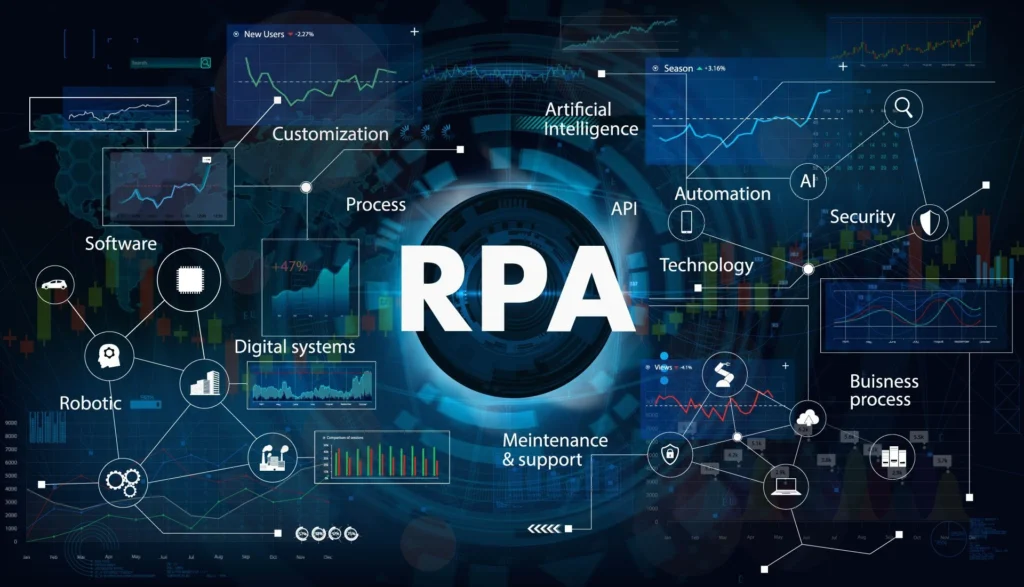Understanding The Role Of Robotic Process Automation In Accounts Payable

Robotic Process Automation (RPA) is a new technology that has greatly enhanced the management of accounts payable (AP) processes. This facility provides efficiency by transforming cumbersome tasks into streamlined processes. The robotic process automation in accounts payable increases accuracy and saves substantial costs.
Knowing About Robotic Process Automation
The RPA uses software robots, popular as ‘Bots’ for automating highly repetitive tasks. These tasks like data entry, processing invoices, reconciliation, and more were previously done by humans. Now, these bots can perform human-like interactions by using digital systems to work more accurately and quickly than people.
The Role of Robotic Process Automation in Accounts Payable
These are some of the impressive roles of RPA in Accounts Payable
- Processing Invoices
Invoice management is among the notable things that have changed greatly in the accounts payable department due to robotic process automation. The AP department was previously relying on manual entry services to fill their accounting systems with data. This process took a long time to execute and was often filled with errors. But now, extracting e-mail and scanning for invoices is a role done by these robots. These help in validating the information and adding it to the accounting system. This speeds up the process in an error-free way.
- Approval Workflow
Invoices mostly need approval from different people before they can be paid. It’s easy to automate the routing of invoices for approval using pre-defined business rules by using robotic process automation. Bots can keep track of the approval statuses and sending out reminders when necessary to avoid any delays in processing them. This greatly reduces the cycle time and increases efficiency.
- Payment Processing
Once the bill is approved, the RPA can automate the payment process. The bots can initiate the payments through various channels. They can use bank transfers, checks, or electronic payments. They can update the status of payment in the accounting system. This ensures on-time payment and lowers the risk of late fees and interest amounts.
- Reconciliation of Data
Reconciliation of accounts is an important function in Accounts Payable. It requires matching purchasing orders, invoices, and payment records. Robotic Process Automation can simplify the process by automatically comparing records from different sources and recognizing shortcomings. This saves time and enhances accuracy. It makes sure that the financial statements are reliable.
- Audit and Compliance
Adherence to regulatory requirements and internal policies is important for AP. Robotic Process Automation helps in maintaining compliance. It makes sure all processes are documented and audit trails are generated automatically. The bots perform regular checks to make sure that there is compliance with the standards. It reduces the risk of fraud and penalties.

Benefits of Robotic Process Automation in Accounts Payable
These are some of the notable benefits of RPA.
- Saves cost
Robotic Process Automation takes over repetitive responsibilities cutting out the necessity for hand work. It results in significant cost savings, allowing companies to focus on strategic top-level assignments that demand analytical thinking and developing solutions.
- Increases Efficiency and Accuracy
RPA can operate 24/7 without taking any breaks. It drastically improves the speed of accounts payable processes. The jobs that took countless hours can now be accomplished in minutes. This leads to quicker turnaround times and improves the management of cash flow. It prevents errors in manual data entry and performs tasks with a high degree of precision.
- Improves Scalability
As a business grows, the volume of transactions also increases. RPA provides scalability that lets the companies handle larger volumes of invoices and payments. This task is accomplished without increasing the workforce.

Some Considerations
The accounts payable robotic process automation has countless benefits. But, there are some challenges as well. The implementation of RPA needs an initial investment in technology and training. Businesses need to ensure that the processes are properly defined and standardized before automation. In addition, regular maintenance and updates of the bots are necessary to keep up with the changing industry requirements.
Conclusion
Robotic Process Automation is transforming accounts payable by automating repetitive duties. It improves efficiency and enhances accuracy. The above-written points prove that b is a great technology for saving time and increasing profits. We at Katpro provide innovative technologies for your business needs. They help to decrease the workload and increase the profits. Get in touch to learn more.



